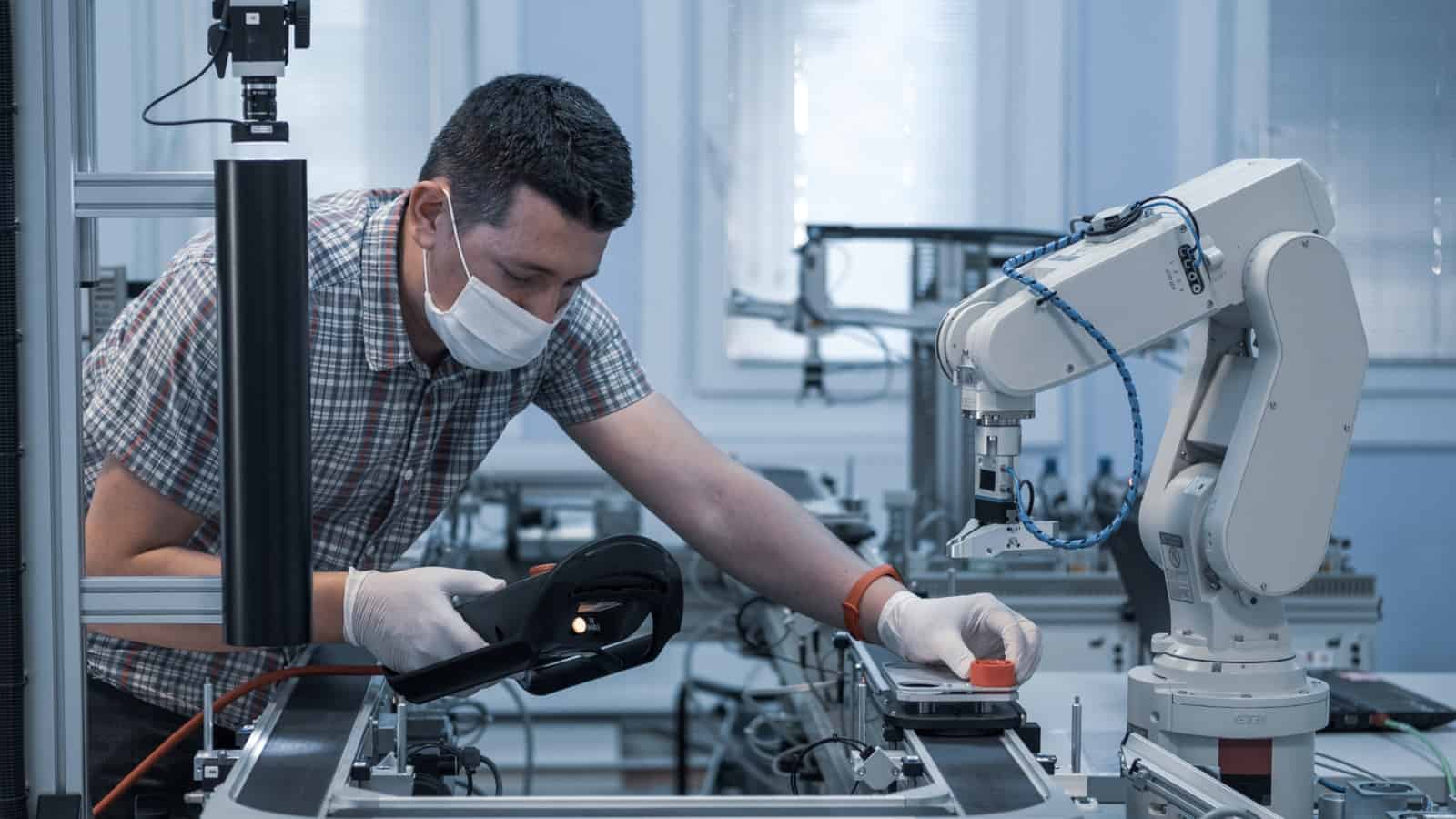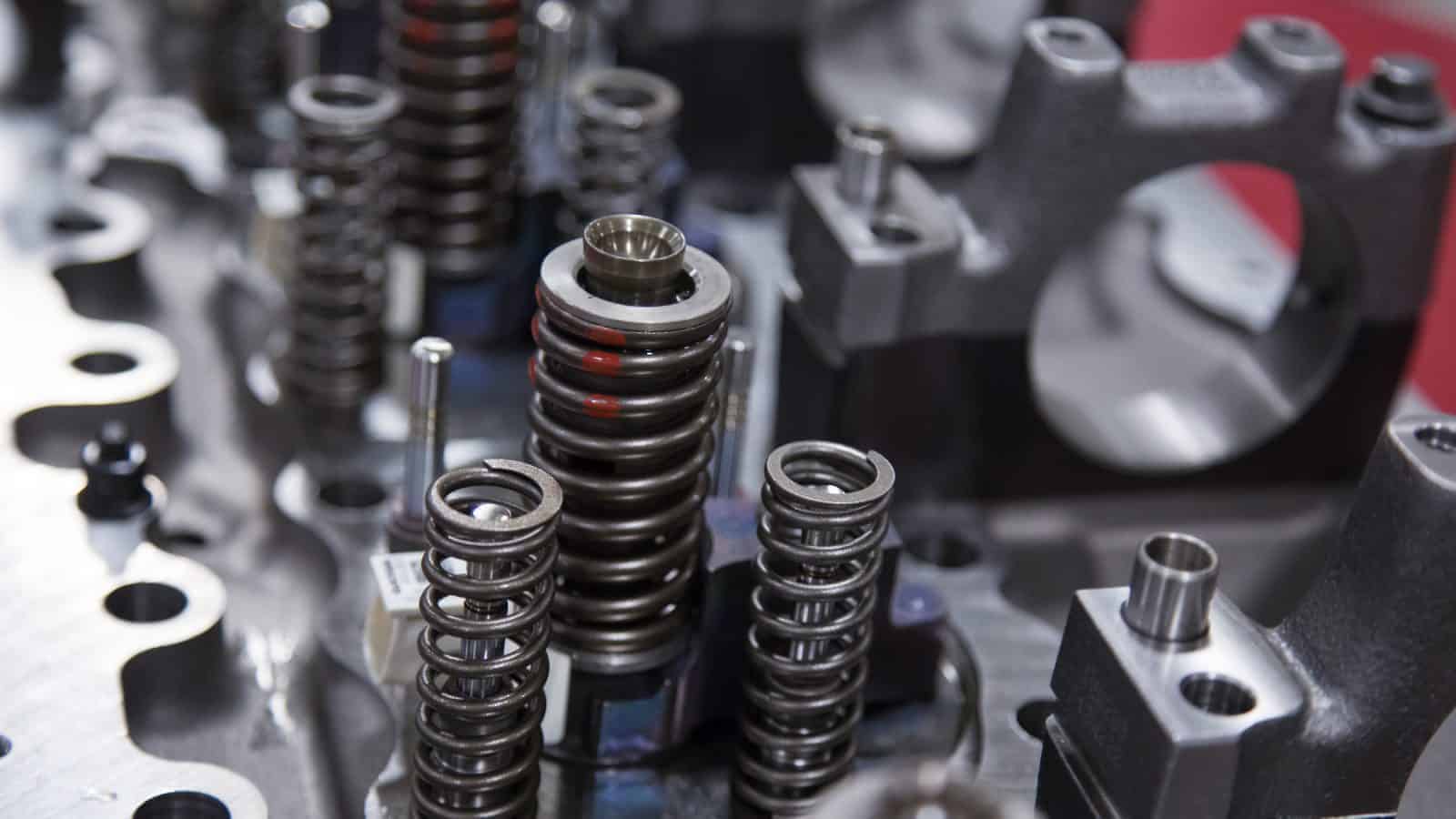“A Driver Rather Than a ‘Retirer’ of Employment”: Technology Supports Workers

Manufacturers largely agree that technology will help workers, not displace them, speakers said at the Manufacturing Leadership Council’s recent virtual event, “M2030 Visions of the Future: Reflections on New Orleans.”
New Orleans readout: The webinar, which featured a panel of technology experts, was a recap of highlights from the MLC’s December 2021 Manufacturing in 2030 project event in New Orleans, which hundreds of manufacturers attended.
What the future holds: The recent online discussion was primarily about future technological trends in manufacturing, and three major themes emerged: Completely “lights-out” manufacturing (i.e., totally automated) is not a likely near-term reality for manufacturing; upskilling and reskilling will be crucial in attaining syncopation between employees and robots; and most manufacturers have some ways to go to achieve digital maturity.
Lights out? Try lights dimmed: There is a misconception that robotics, artificial intelligence and machine learning will replace human employees on the shop floor. The reality is that they all do best together.
- “I view it more as a ‘dimmer switch’ than ‘lights out,’ and the level to which you can dim depends on the kind of manufacturing you do,” said West Monroe Senior Manager of Consumer and Industrial Practice Alex Jay. Particularly when it comes to “complex materials, [manufacturers will] need a nuanced touch,” which will require more, not less, human interaction.
- “There will be a dimmer switch, a natural limit to how far you would automate,” said Infor Senior Vice President of International Strategy Andrew Kinder. “In the next eight years, we will see more use of technology on the plant floor. Is this a concern for employment? I think the World Economic Forum put that to bed when they said … technology will create 12 million more jobs than it will ever destroy.”
- EY Principal of Strategy and Transactions Rosco Newsom agreed. “[Manufacturers] don’t see ‘lights out’ happening in the near future.”
Upskilling and reskilling: The increased use of Manufacturing 4.0 technologies on the shop floor will only increase the need for skilled talent, the panelists agreed.
- First, “there is reskilling and upskilling required even to make those ‘lights out’” changes, said NTT Data Senior Director of Manufacturing Industry Solutions Baskar Radhakrishnan.
- Complex materials that need nuanced touch and geometric dimensioning and tolerancing “will need more human interaction,” not less, Jay said.
Maturity not yet reached: As was evidenced by questions from the webinar audience and comments from manufacturers during the New Orleans event, many manufacturers could use guidance when it comes to using more technology.
- For smaller manufacturers wondering where to start implementing Manufacturing 4.0, look to “labor-intensive, repetitive tasks,” Radhakrishnan said. “That’s where you start.”
The last word: Robotics aren’t going to put anyone out of a job. As Kinder said, “Tech seems to be a driver rather than a ‘retirer’ of employment.”
